Until We Are All Equal: Imagining Equal Power
Event description
As we kick off our 5th anniversary event series, we invite you to join us for the first of these events as we analyze past and current global health power dynamics, promising models, and imagine new formulations committed to more equitable global health governance and practice. This first event “Until We Are All Equal: Imagining Equal Power” will take place on Wednesday, September 4, at 9:00 am PDT/12:00 pm EDT/6:00 pm CEST.
All would agree centering equal power relations in global health means reshaping global governance structures so that decision making is not driven exclusively by those state and non-state actors with the most power and wealth. A key tenet of global health is solidarity – across international organizations, healthcare institutions, communities, research and policy initiatives, and geographies – which requires addressing inequitable power structures and promoting justice and sustainable partnerships in all efforts to advance good health outcomes. At the USC Institute on Inequalities in Global Health, we are committed to advancing a collective understanding of the impacts of unequal power dynamics on global health financing, policy, and outcomes, and seeking solutions and new models that can provide a foundation for coordinated and joint global health efforts. This one-hour virtual event will foreground the theories and practical implications of unequal power in the sphere of global health. We will discuss how, as academics, students, researchers, healthcare providers, advocates, and policymakers, we can recognize and disrupt power structures in order to bring equity to the forefront of actions impacting health and wellbeing.
The conversation will begin with an introduction from IIGH Director Sofia Gruskin and will be moderated by IIGH Director of Policy Engagement Jonathan Cohen.
The webinar is hosted by the USC Institute on Inequalities in Global Health.
Please join us on Wednesday, September 4, at 9:00 am PDT/12:00 pm EDT/6:00 pm CEST.
Speakers:
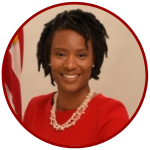
Loyce Pace is responsible for advancing the U.S. international health agenda through multilateral and bilateral forums. Reporting directly to the Secretary of Health & Human Services (HHS), she is the Office of Global Affairs’ lead on setting priorities and policies that promote American public health agencies and interests worldwide. She oversees HHS’ engagement with foreign governments and international institutions as well policymaking bodies such as the G7, G20, United Nations General Assembly (UNGA), and World Health Assembly. Previously, she served as President & Executive Director of Global Health Council (GHC) and was also a member of the Biden-Harris Transition COVID-19 Advisory Board. At GHC, she advocated for increased federal investments in global health, in the face of budget cuts to the U.S. Centers for Disease Control & Prevention, United States Agency for International Development, and World Health Organization (WHO). Prior to her role at GHC, she spent over a decade working with community-based organizations and grassroots leaders in countries across Africa and Asia on campaigns calling for person-centered access to health. Additionally, she has held positions on various global and regional advisory committees and boards that focus on equity and inclusion. She holds a Bachelor’s degree with Honors in human biology from Stanford University and a Master’s degree in international health & human rights with the distinction of Delta Omega from Johns Hopkins Bloomberg School of Public Health.
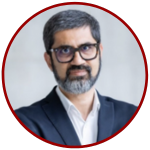
Rajat Khosla is the Partnership for Maternal, Newborn & Child Health Executive Director, taking his post in May 2024. He comes from the International Institute on Global Health (UNU-IIGH) where he acted as Director. He works on women, children and adolescent health through the intersections of research, policy, and practice. Over the last twenty years his work has focused on global health and inequalities, sexual and reproductive health and rights, gender equality and health equity. He has published widely in academic publications and writes regularly on these issues. He previously worked at the World Health Organisation and UN Office of the High Commissioner for Human Rights where his work focused on research and normative development for implementation of the Sustainable Development Goals related to health in particular on issues related to sexual and reproductive health; develop and guide policy and legal analysis; and develop policy frameworks on the integration of women’s rights in humanitarian emergencies. Previously he has served in a variety of research and policy roles with civil society organizations and think tanks such as the Centre for the Study of Developing Societies, and the International Environmental Law Research Centre, and others. He has also advised numerous organizations such as UNDP, UNICEF, UNFPA and others on issues related to women, children and adolescent health. He is an Adjunct Research Professor at the University of Southern California Institute on Inequalities in Global Health and a Visiting Fellow at the University of Essex Human Rights Centre. His current affiliations include membership of the UNU-IIGH Gender and Health Hub High-level Advisory Committee. He is an alumna of University of Delhi and University of Essex.
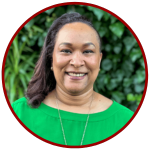
Solange Baptiste is the Executive Director of ITPC Global where she leads a global community of activists and allies in their mission for health and social justice through robust community engagement to drive equality in health. With a focus on HIV as an entry point to the broader right to health, her work encompasses ensuring access and availability to quality treatment for all, making medicines affordable and building community systems for a joint health effort. Central to her work is leveraging community data to catalyze community-driven innovations that tackle challenges of paramount importance to communities. She actively contributes her expertise to various technical working and advisory groups at UNAIDS and the WHO. She is also a member of the Steering Committee of the Global Public Investment Network (GPIN), which addresses development financing for global public goods. For over 18 years, she has worked to ensure that the voice of affected communities influences the decisions and policies that affect their lives by applying expertise in global program management, advocacy, community system strengthening and social and political epidemiology. She holds a Bachelor of Science in Biology from Tuskegee University and a Master of Science in Population and International Health from Harvard T.H. Chan School of Public Health. She is a native of Trinidad and Tobago and is based in Johannesburg, South Africa.
Moderator:
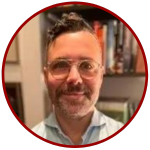
Jonathan Cohen is Director of Policy Engagement with the USC Institute on Inequalities in Global Health (IIGH) and Clinical Professor for the Division of Disease Prevention, Policy and Global Health at the Keck School of Medicine (KSOM). An internationally recognized expert in health and human rights, Cohen joined USC from the senior leadership of the Open Society Foundations, where he directed the foundation’s $39M public health portfolio and chaired its leadership committee advancing diversity, equity and inclusion. He represents IIGH and KSOM on USC’s new Capital Campus in Washington, DC, connecting USC faculty and students to national and international decision-makers in the field of global health. An emerging leader in the field of population aging, Cohen was a Health and Aging Policy Fellow with the United States Senate in 2022-2023. Earlier in his career, he was a researcher with the HIV/AIDS and Human Rights Program at Human Rights Watch and a law clerk at the Supreme Court of Canada.
Introductory Remarks:
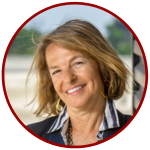
Sofia Gruskin directs the USC Institute on Inequalities in Global Health (IIGH). She is USC Distinguished Professor of Population, Public Health Sciences & Law, Professor of Preventive Medicine and Chief of the Disease Prevention, Policy and Global Health Division at the Keck School of Medicine, and Professor of Law and Preventive Medicine at the Gould School of Law. A pioneer in bringing together multidisciplinary approaches to global health, Gruskin’s work — which ranges from global policy to the grassroots level — has been instrumental in developing the conceptual, methodological and empirical links between health and human rights. She currently sits on numerous international boards and committees including the PEPFAR Scientific Advisory Board, the Lancet Commission on Gender and Global Health, the IUSSP Steering Committee to Strengthen Civil Registration and Vital Statistics Systems, and the Lancet Commission on Health and Human Rights. She has published extensively, including several books, training manuals and edited journal volumes, and more than 200 articles and chapters.
Tickets for good, not greed Humanitix dedicates 100% of profits from booking fees to charity


